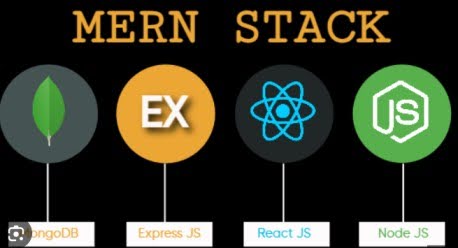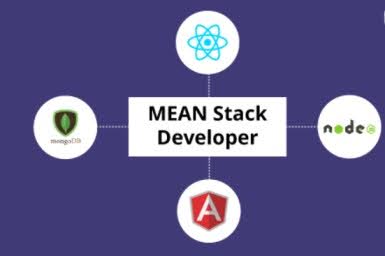MERN vs. MEAN Stack: A Comparison to Help You Choose the Best for Your Business
In the world of web development, selecting the right technology stack can significantly influence the success and efficiency of your project. Two of the most popular stacks today are the MERN Stack and the MEAN Stack. Both offer robust solutions for building dynamic, high-performance applications, but they come with their own set of advantages and disadvantages. This blog will delve into the advantages of MERN stack and the advantages of MEAN stack, compare their features, and explore their importance to help you make an informed decision for your business.
When it comes to developing web applications, the choice of technology stack plays a critical role in determining the project’s performance, scalability, and ease of development. The MERN Stack and MEAN Stack are both full-stack JavaScript solutions that enable developers to build powerful web applications with a consistent and unified codebase. While both stacks share many similarities, their key differences, including the MERN stack advantages and disadvantages, can affect your project’s needs and objectives. Understanding the importance of MERN stack and the importance of MEAN stack is essential for choosing the right technology for your business.
What is the MERN Stack?

The MERN Stack is a popular web development stack that consists of MongoDB, Express.js, React, and Node.js. Each component of the MERN stack plays a specific role in the application development process:
- MongoDB: A NoSQL database that stores data in flexible, JSON-like documents, making it easy to scale and manage.
- Express.js: A web application framework for Node.js that simplifies server-side development and routing.
- React: A JavaScript library for building user interfaces, developed by Facebook, known for its component-based architecture and efficient rendering.
- Node.js: A JavaScript runtime environment that allows developers to run JavaScript code on the server side, providing a non-blocking I/O model.
Advantages of MERN Stack
The advantages of MERN stack are numerous, making it a preferred choice for many developers:
Unified JavaScript Development:
With the MERN Stack, developers use JavaScript throughout the entire stack. This uniformity streamlines development and reduces context switching between different programming languages.
- Component-Based Architecture: React’s component-based architecture promotes reusable code and simplifies the management of complex UIs. This modular approach enhances development efficiency and maintainability.
- Real-Time Data Processing: Node.js and MongoDB enable real-time data processing, making the MERN Stack ideal for applications that require live updates, such as chat applications or collaborative platforms.
- Scalability: MongoDB’s schema-less design and the asynchronous nature of Node.js support scalable applications that can handle high volumes of traffic and data.
- Active Community and Ecosystem: The MERN Stack benefits from a vibrant community and a rich ecosystem of tools and libraries, which can accelerate development and provide solutions to common problems.
Disadvantages of MERN Stack
While the MERN Stack offers several advantages, it is not without its drawbacks:
- Steeper Learning Curve: For developers unfamiliar with React or MongoDB, the MERN Stack can have a steeper learning curve compared to other stacks.
- Overhead with React: React’s extensive ecosystem and the need to integrate various libraries can introduce complexity and overhead, potentially leading to longer development times.
- Performance Considerations: Although Node.js is efficient, it may not be the best choice for CPU-intensive operations, which can affect the performance of certain applications.
What is the MEAN Stack?

The MEAN Stack is another full-stack JavaScript solution, comprising MongoDB, Express.js, Angular, and Node.js. Here’s a brief overview of its components:
MongoDB:
As with the MERN Stack, MongoDB serves as the NoSQL database, offering flexibility and scalability.
- Express.js: Express.js provides a framework for building server-side applications, managing HTTP requests, and simplifying routing.
- Angular: Developed by Google, Angular is a powerful front-end framework that offers two-way data binding, dependency injection, and a comprehensive set of tools for building dynamic web applications.
- Node.js: Node.js serves as the server-side runtime environment, enabling JavaScript code execution on the server.
Advantages of MEAN Stack
The advantages of MEAN stack are also significant and contribute to its popularity:
- Comprehensive Framework: Angular offers a comprehensive framework that includes features like two-way data binding and dependency injection, which can simplify complex application development and enhance productivity.
- Two-Way Data Binding: Angular’s two-way data binding ensures that changes in the user interface automatically reflect in the data model and vice versa, reducing the need for additional code and improving synchronization.
- Modular Architecture: Angular’s modular architecture promotes organized code and reusable components, facilitating easier maintenance and scalability.
Strong Community Support:
Angular, being backed by Google, has a strong community and extensive resources, which can be beneficial for developers seeking support and learning materials.
- Consistent Performance: The MEAN Stack provides consistent performance across the entire application, thanks to Angular’s robust tooling and Node.js’s efficient handling of asynchronous operations.
Disadvantages of MEAN Stack
Despite its advantages, the MEAN Stack has its own set of challenges:
- Complex Learning Curve: Angular’s extensive features and its unique approach to application development can result in a complex learning curve for new developers.
- Heavy Framework: Angular’s comprehensive nature can lead to larger bundle sizes and potentially slower performance compared to more lightweight solutions.
- Migration Issues: Upgrading Angular versions or migrating from AngularJS can be challenging and may require significant effort and refactoring.
Comparing MERN and MEAN Stacks
When deciding between the MERN Stack and the MEAN Stack, consider the following factors:
Project Requirements:
Determine if your project will benefit more from Angular’s extensive front-end capabilities or React’s versatile, component-based design. Understanding the MERN stack advantages and disadvantages can guide this decision.
Development Team Expertise:
Reflect on your development team's proficiency. If they are more adept with Angular, the MEAN Stack might be more suitable. Conversely, if they excel with React, the MERN Stack could be the better option, considering the advantages and disadvantages of MERN stack.
Performance Needs:
Evaluate your application's performance needs. While both stacks offer scalable solutions, Node.js’s efficiency combined with MongoDB’s flexible schema can be particularly beneficial for real-time and data-heavy applications.
Learning Curve:
Consider the learning curve associated with each stack. If rapid development is crucial, choosing a stack that aligns with your team’s existing knowledge may accelerate the process.
Importance of MERN Stack
The importance of MERN stack lies in its ability to provide a unified JavaScript environment for both client-side and server-side development. This uniformity streamlines the development process, fosters code consistency, and simplifies the management of full-stack applications. The MERN Stack’s flexibility, combined with React’s component-based architecture, makes it a powerful choice for developing interactive and dynamic user interfaces.
Importance of MEAN Stack
The importance of MEAN stack is evident in its comprehensive framework and robust features provided by Angular. Angular’s two-way data binding and modular architecture enhance productivity and maintainability, making the MEAN Stack a strong candidate for complex and feature-rich applications. The consistent performance across the stack and the strong community support also contribute to its significance in modern web development.
Conclusion
Choosing between the MERN Stack and the MEAN Stack ultimately depends on your project’s specific needs, your team’s expertise, and your long-term goals. Both stacks offer distinct advantages and come with their own set of challenges. The advantages of MERN stack include a unified JavaScript development environment and a flexible component-based approach, while the advantages of MEAN stack include a comprehensive framework and consistent performance. Understanding the importance of MERN stack and the importance of MEAN stack will guide you in making the right choice for your business.
By carefully evaluating the characteristics of each stack and aligning them with your project requirements, you can leverage the strengths of either the MERN Stack or the MEAN Stack to build efficient, scalable, and high-performing web applications.
